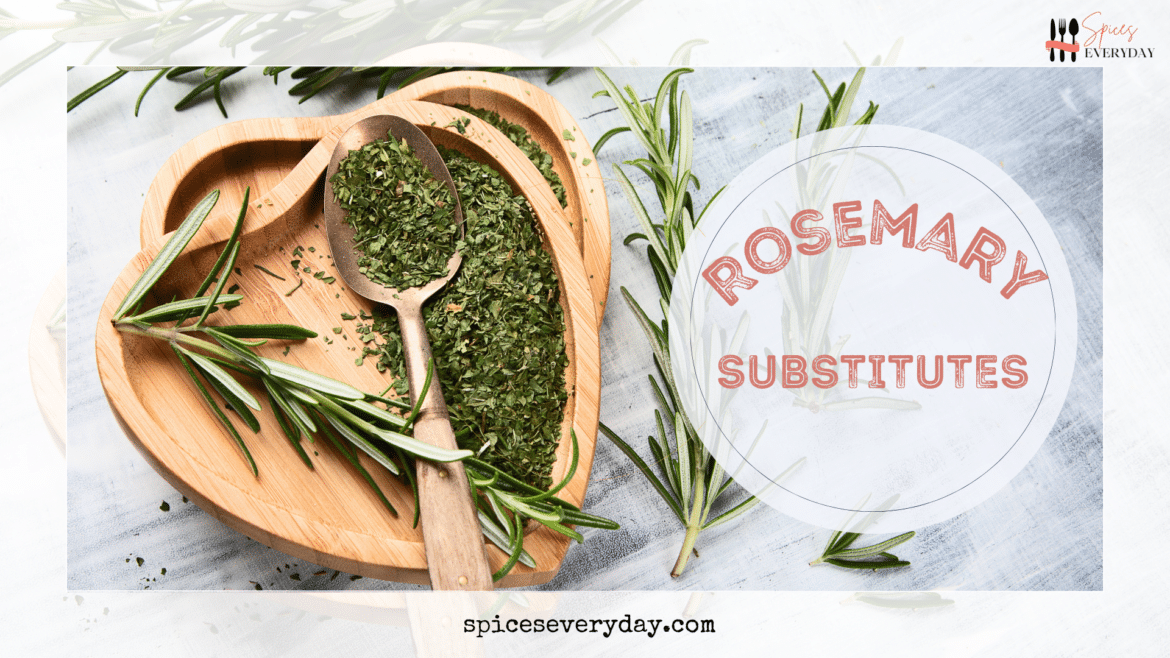Table of Contents
Have you ever heard of something as fresh as cilantro that adds depth to a recipe? I am talking about rosemary, which has a woody scent and adds a pine-like flavor to any dish. This herb is deemed the pinnacle of aromatic freshness and is used in a variety of savory cuisines, such as Italian and French. Just like Aleppo pepper, rosemary can be used as a seasoning to rev up the taste of any recipe. So, when you are preparing something and the recipe calls for rosemary, but you don’t have any, you probably need its substitute. I am here with an article guide, entailing a meticulously crafted list of substitutes for rosemary to help you cook while maintaining the savory flavor profile.
Nutritional Content of Rosemary
Below is a table on the nutritional content of rosemary.
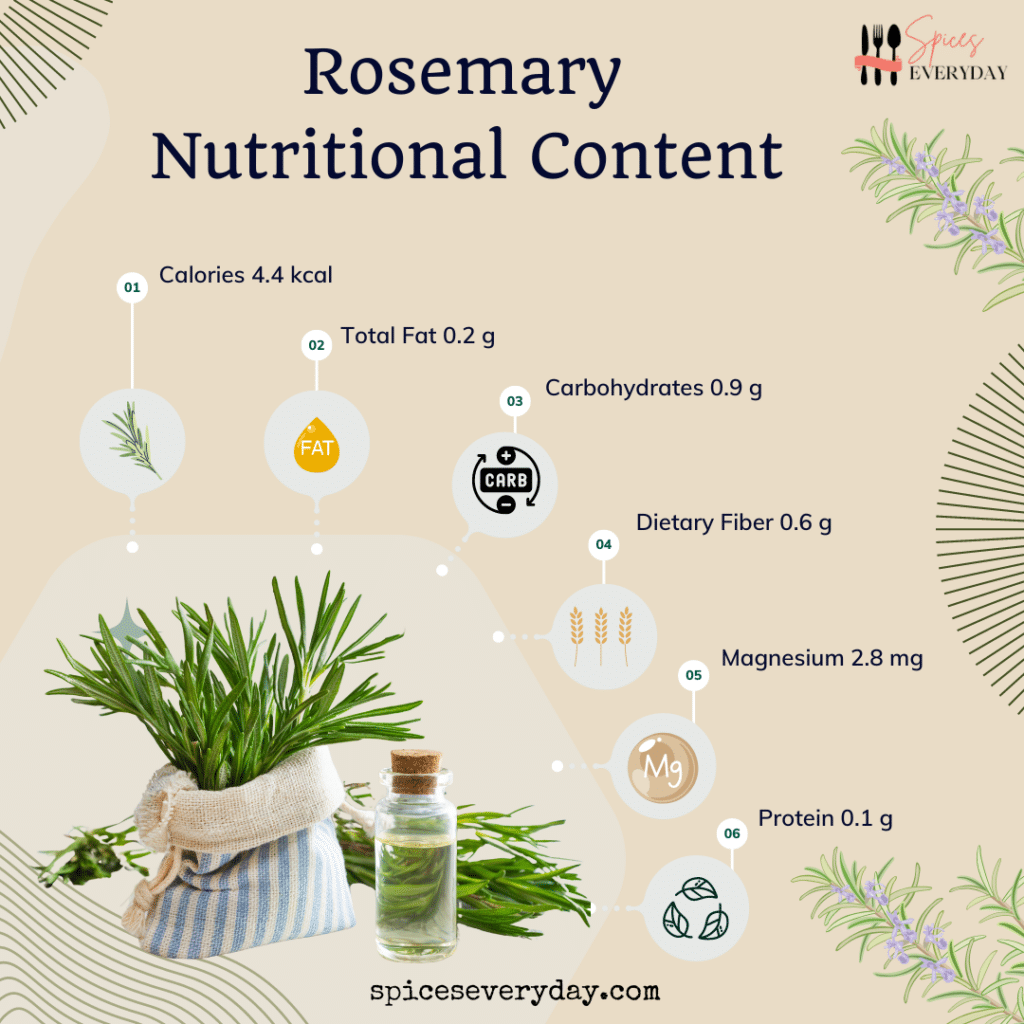
1. Thyme

If you want to know about a substitute herb for rosemary that adds a somewhat savory flavor note to the dishes, dried or fresh thyme can be a preferable choice.
- Flavor Profile: Thyme has a flavor that is slightly earthy, citrusy, and minty.
- Best Uses: Great for stews, soups, long-cooking recipes, and meat dishes.
- Why It Works: Like rosemary, thyme’s strong flavor can withstand extended cooking. It balances the savory notes of food and tastes great when combined with herbs such as garlic and onions.
2. Sage

This strong-flavored herb has a rich cultural history and falls beyond mere culinary uses, contributing to the medical field with its amazing benefits. We can use it as a substitute for rosemary spice to add a peppery tone to the recipe. Used in the right amount, it can be a great substitute for rosemary.
- Flavor Profile: Its taste is savory with a subtle peppery undertone.
- Optimal Uses: Stuffing, spaghetti, roasted veggies, and poultry meals.
- Why It Works: The herbal notes of rosemary are good in recipes similar to this one, and sage enhances them. It complements meaty flavors and pairs nicely with robust vegetables and sauces made with butter.
3. Oregano as Substitute for Rosemary
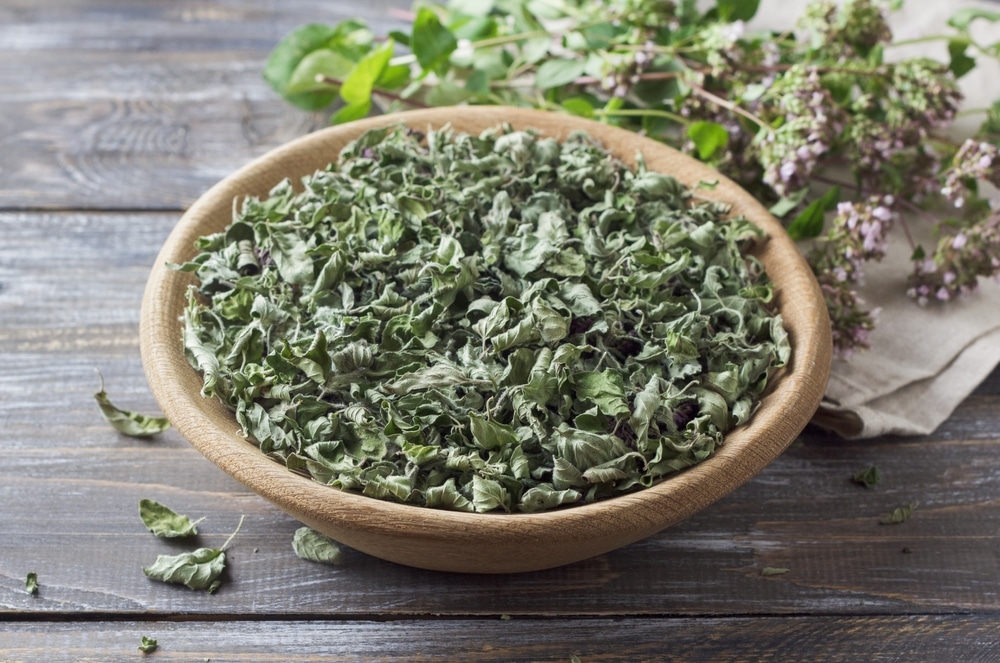
Everybody’s favorite, this Italian seasoning turns out to be a good substitution for rosemary.
- Taste Profile: Mediterranean cuisine is known for its robust and slightly bitter flavor.
- Optimal Uses: Roasted veggies, grilled meats, and sauces made with tomatoes.
- Why It Works: Enhances savory foods with a robust herbaceous flavor similar to rosemary. The potency of oregano flavor can cut through hearty flavors in casseroles and braised foods. So, why wait when you have such a good alternative to fresh or dried rosemary?
4. Marjoram
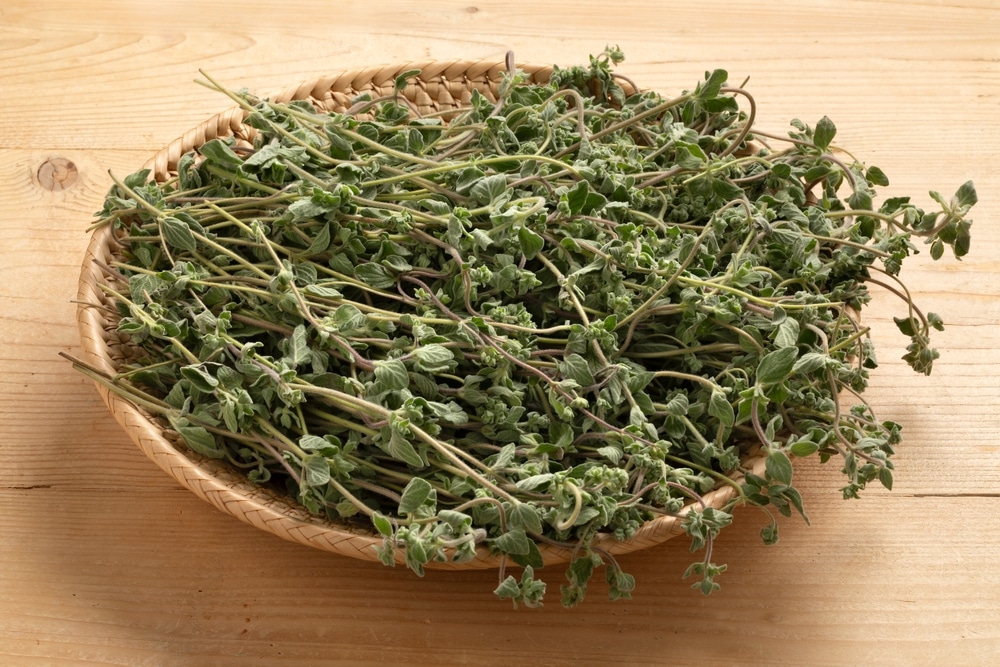
This herb has a citrus and pine-like flavor, which is no doubt very similar and an ideal substitute for rosemary.
- Flavor Profile: Gently sweet and mild, much like rosemary.
- Optimal Uses: Broiled potatoes, chicken meals, and bread recipes.
- Why It Works: The delicate, aromatic touch of marjoram enhances other flavors without taking over. It enhances the flavor of delicate meats and gives richness to oils and vinegars steeped with herbs.
5. Summer Savory
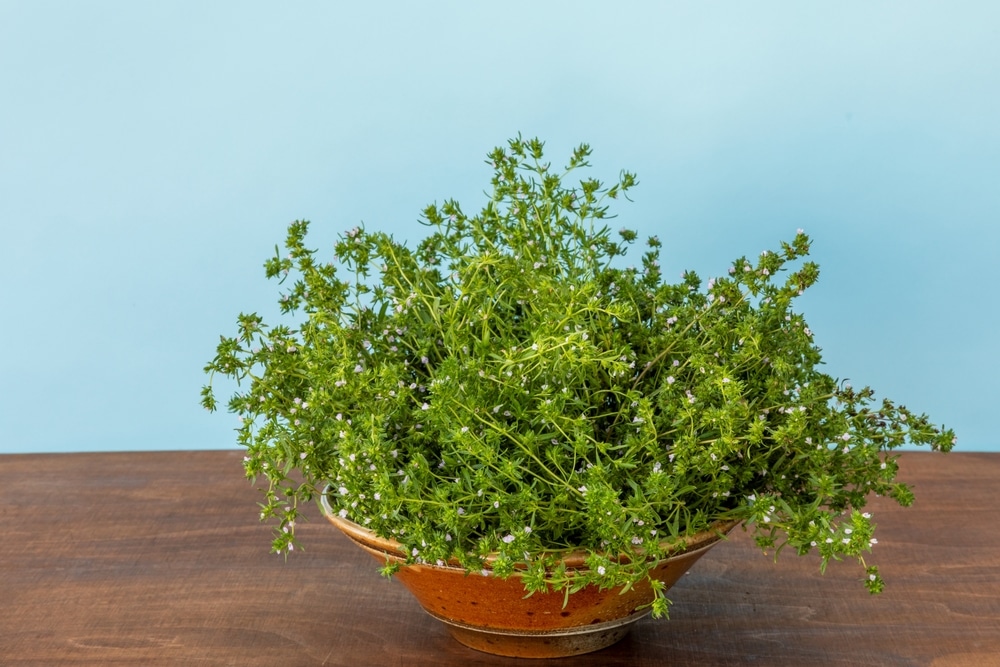
Savory, with its slightly pungent flavor, is sure to wow guests when you are using it as a substitute for fresh rosemary.
- Flavor Profile: Savory and peppery, like thyme, with a more robust taste.
- Best Uses: Stuffing, marinades, and bean dishes are some of its best uses.
- Reasons It Works: Its strong taste lends itself to recipes that call for a strong herb, like rosemary. Savory can be used in herb blends for grilled meats and to improve the meaty profile in vegetable dishes.
6. Tarragon
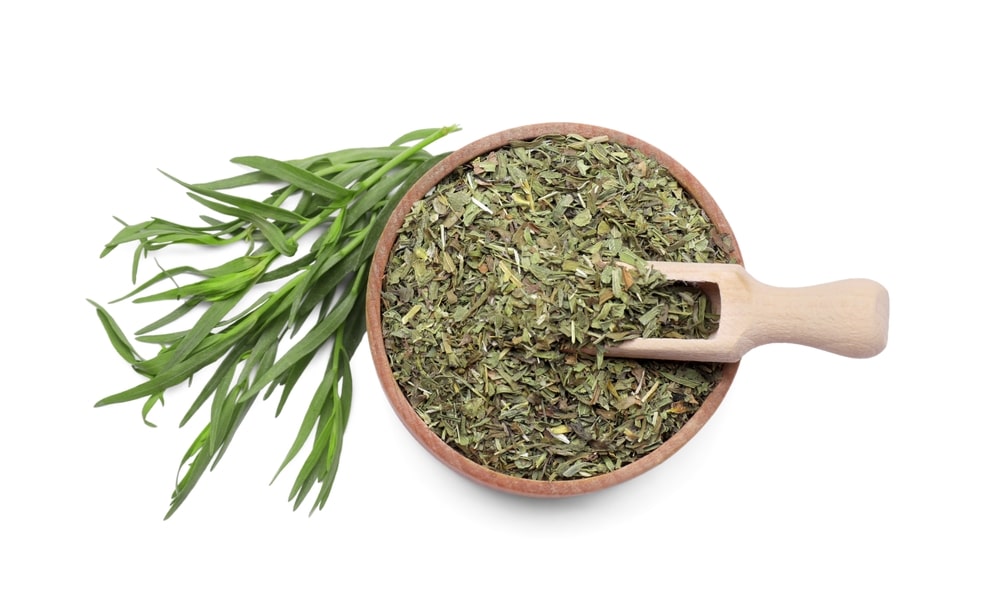
Folks, if you have invited guests over and out of rosemary, you would be thinking, what can I substitute for rosemary? I am here with an amazing replacement, i.e., tarragon.
- Flavor Profile: Mild with a trace of sweetness reminiscent of licorice.
- Optimal Uses: Seafood, poultry, omelets, and sauces.
- Why It Works: Equal parts of tarragon give recipes a fresh herbal note, even though it’s milder than rosemary. However, it complements lemony and mustard-based sauces nicely, bringing out the brightness of creamy soups and seafood meals.
7. Herbes de Provence
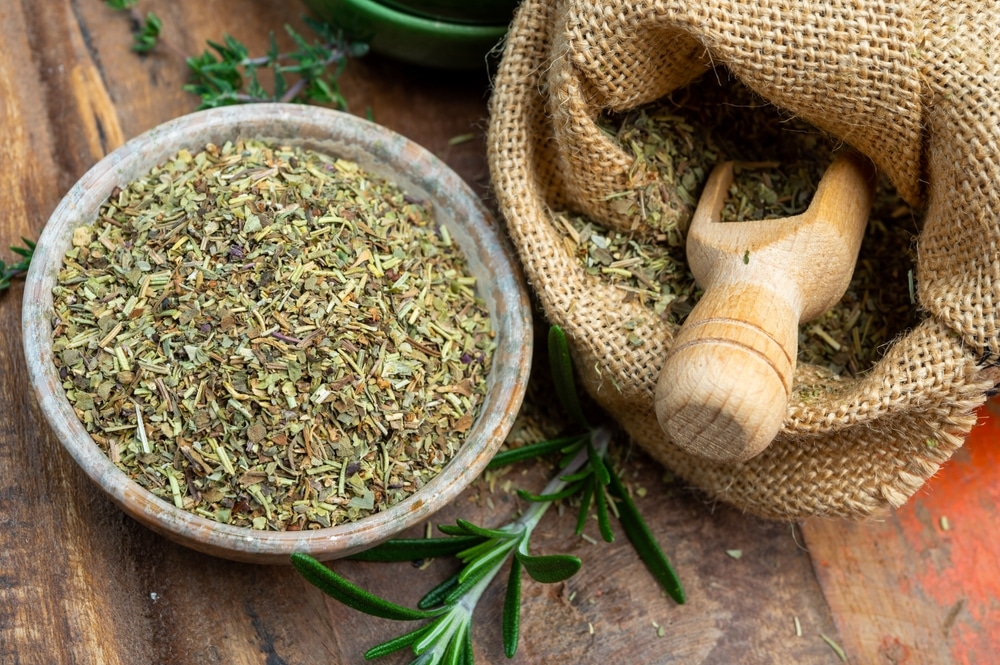
Don’t get confused with its complex name; this is an easily available herb that is not only a great substitute for dried rosemary but enhances the flavor profile of dishes.
- Composition: Consists of thyme, savory, marjoram, and occasionally lavender.
- Optimal Uses: Roasted meats, bread, pastry dough, and Mediterranean dishes.
- Reasons It Works: Provides a taste profile that is robust enough to replace rosemary in a variety of recipes. Apart from that, Herbes de Provence can be added to lamb and poultry marinades or used as a dry rub for grilled vegetables.
8. Basil
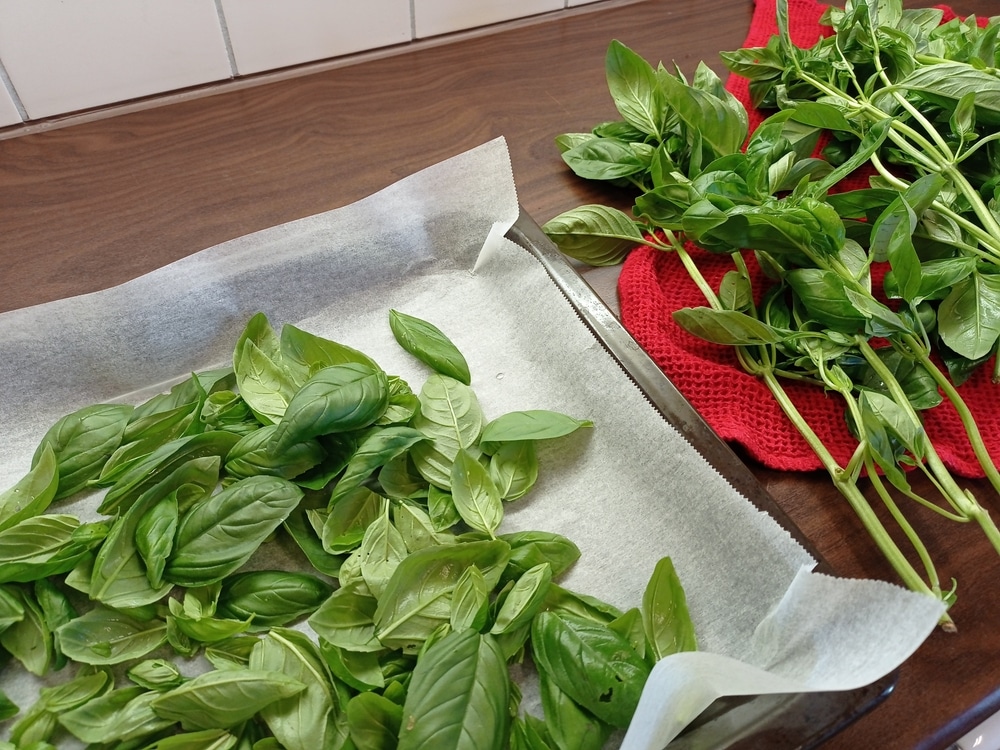
This herb can be substituted for rosemary to add great depth and a rich flavor. Basil belongs to the mint family and is a great aromatic herb.
- Flavor Profile: Mild and sweet with hints of fresh herbs.
- Best Uses: Pasta, salads, soups, sauces, and Mediterranean and Italian cuisines (seasoning).
- Why It Works: When a milder herb flavor is desired, basil is a great substitute due to its adaptability. It lends freshness to salads, brightness to tomato-based recipes, and a nice contrast to soft cheeses in dips and snacks.
9. Bay Leaves
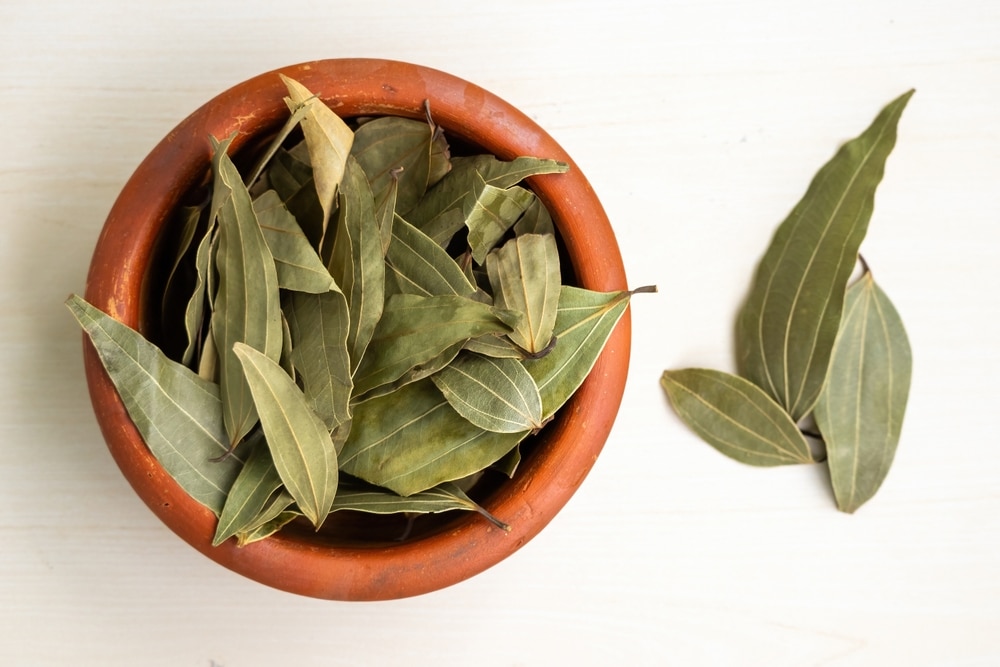
If you are considering what you can substitute for rosemary, bay leaves are your answer.
- Flavor Profile: Mildly bitter with subtle herbal overtones.
- Optimal Uses: Marinated foods, stews, and soups.
- Why It Works: Bay leaves provide savory foods with a richer flavor without quite taking the place of rosemary flavor. Additionally, they flavor rice and grain-based foods and lend a delicate, earthy aroma to broths and sauces.
However, if you want to know about recipes using rosemary herbs for enhanced flavor, check out Jenna’s article.
Conclusion
Wrapping up, the article covered 9 alternatives to rosemary herbs that add the same depth and richer flavors to a variety of cuisines. From the freshness of basil to the spicy taste of summer savory, each herb is readily available at home, making it easy to cook. So, if you are out of rosemary, go for any of these herbs and thank us later.
Opt for a Pine-Like Flavor!

